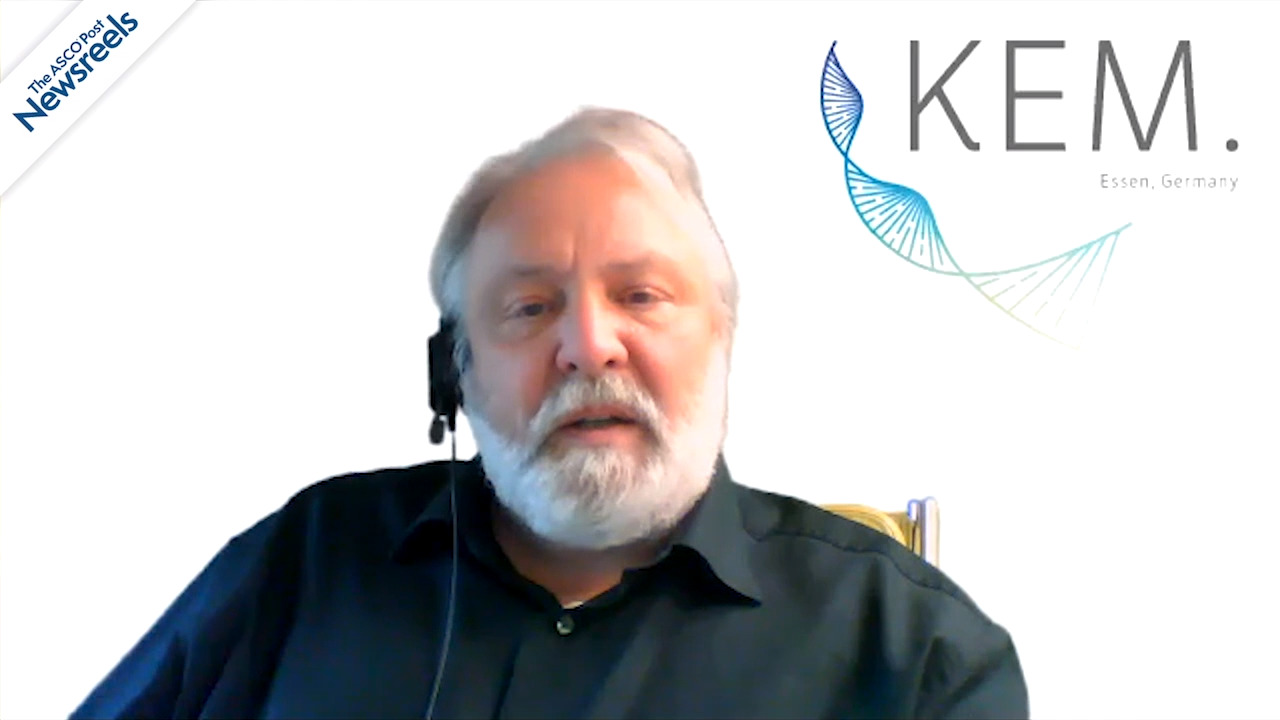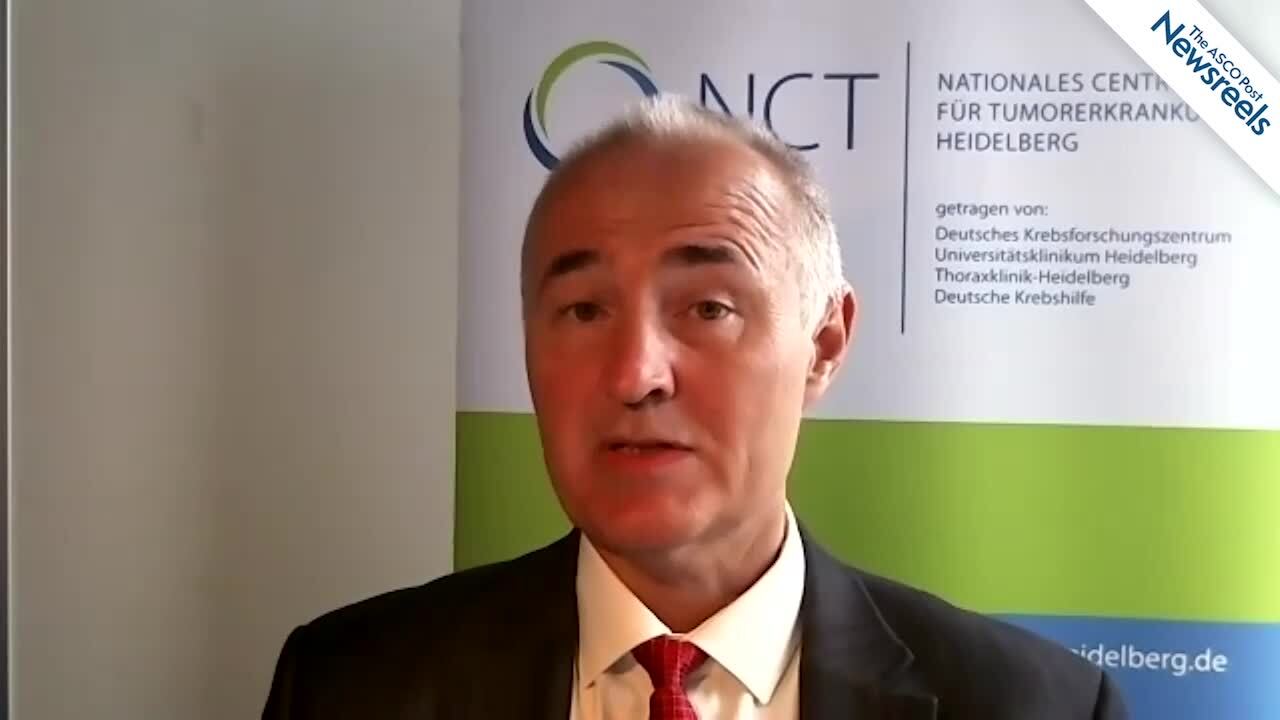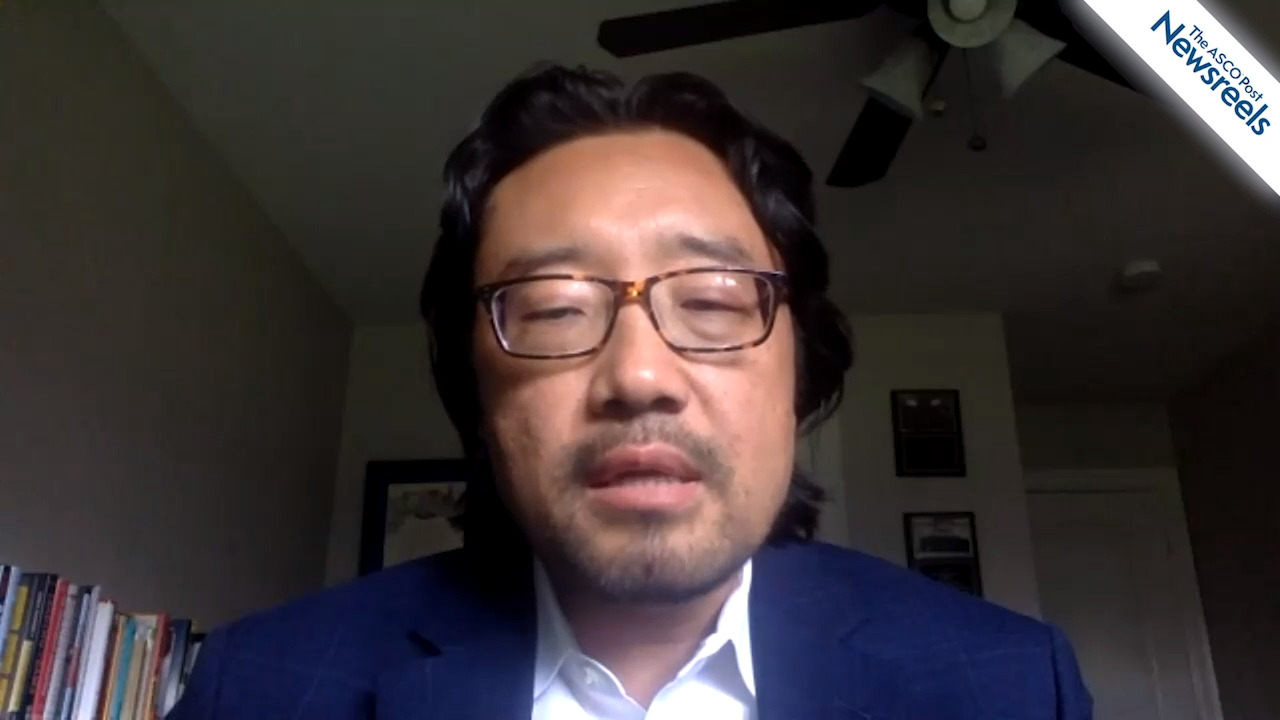Cécile Le Pechoux, MD, on NSCLC: Comparing Postoperative Radiotherapy With No Radiotherapy
ESMO Virtual Congress 2020
Cécile Le Pechoux, MD, of the Institut Gustave Roussy, discusses new findings from an international trial on an old controversy: What is the role of postoperative radiotherapy in locally advanced (stage III) non–small cell lung cancer? The researchers enrolled patients with completely resected disease and mediastinal N2 involvement (Abstract LBA3).
The ASCO Post Staff
Andreas du Bois, MD, PhD, of Kliniken Essen Mitte, discusses the NORA and INOVATYON studies of patients with recurrent ovarian cancer, detailing the findings for women in China with platinum-sensitive disease and women internationally who received trabectedin and pegylated liposomal doxorubicin (PLD) followed by platinum at disease progression vs carboplatin and PLD after disease progression (Abstract LBA29 and LBA30).
The ASCO Post Staff
Andreas Schneeweiss, MD, of the Heidelberg University Hospital and German Cancer Research Center, discusses phase III survival data from the GeparOcto trial, which compared the neoadjuvant chemotherapy intense dose-dense EPC (epirubicin, paclitaxel, and cyclophosphamide) with weekly paclitaxel and liposomal doxorubicin (with or without carboplatin in triple-negative breast cancer) for patients with high-risk early breast cancer (Abstract 160O).
The ASCO Post Staff
Erika P. Hamilton, MD, of Sarah Cannon Research Institute, discusses results of the nextMONARCH study, which indicated that combining abemaciclib with tamoxifen improved overall survival. Dr. Hamilton also details adverse events in different arms of the study (Abstract 273O).
The ASCO Post Staff
David S. Hong, MD, of The University of Texas MD Anderson Cancer Center, discusses study findings on sotorasib, a novel, first-in-class, oral KRASG12C inhibitor. The agent demonstrated durable disease control in heavily pretreated patients with non–small cell lung cancer (Abstract 1257O).
The ASCO Post Staff
Alexander M. Eggermont, MD, PhD, of the Princess Maxima Center for Pediatric Oncology, discusses final results of the phase III EORTC 1325-MG/Keynote 054 trial, which confirmed a sustained recurrence-free survival benefit of pembrolizumab vs placebo in patients with resected high-risk stage III melanoma, as well as a decrease in the incidence of distant and locoregional recurrence (Abstract LBA46).





